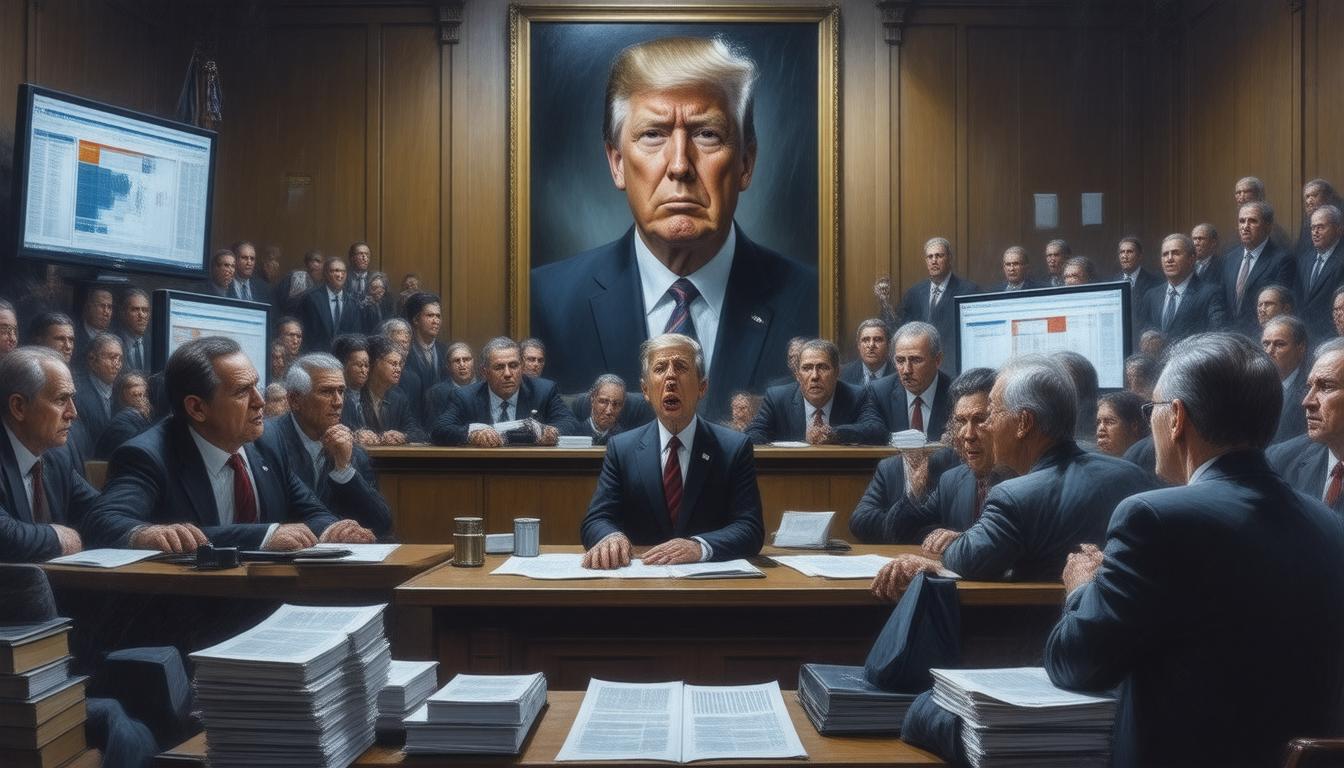In a pivotal conclusion to a contentious chapter in American politics, the final report from Special Counsel Jack Smith presents a comprehensive examination of Donald J.
Trump’s alleged attempts to interfere with the election process following the 2020 presidential election.
This extensive 137-page document not only highlights significant evidence that could have led to a conviction but also raises pressing questions about the implications of Trump’s political future and the legal landscape moving forward, especially in light of his recent election victory in
2024.
As the report underscores the categorical stance of the Justice Department regarding the indictment of a sitting president, the findings have ignited debate over accountability and the preservation of democratic values.
Key Takeaways
- The Special Counsel’s report indicates substantial evidence against Trump for election interference.
- Despite a potential conviction, constitutional constraints may shield a sitting president from prosecution.
- The report highlights serious concerns about threats to American democracy posed by Trump’s actions.
Key Findings of the Special Counsel’s Report
The recent findings from Special Counsel Jack Smith’s report have significant implications for both the political landscape and the ongoing discourse regarding accountability in governance.
The detailed 137-page document asserts that there was substantial evidence that could have led to a conviction of Donald J.
Trump for his attempts to overturn the 2020 presidential election results.
This complicates matters further as Trump has now returned to the political arena with his 2024 election bid.
Smith emphasized the Justice Department’s position, noting that the Constitution effectively prohibits the indictment and prosecution of an incumbent president, regardless of the severity of the underlying allegations.
This aspect of the report highlights a critical discussion point about the limits of presidential immunity in the face of alleged wrongdoing.
Smith’s resignation prior to the report’s release does not overshadow the depth of investigation he conducted, which starkly portrays Trump’s purported actions as a significant threat to the democratic foundations of the United States.
As consumers of news and information, understanding the ramifications of these findings is essential in navigating the evolving narrative around political leadership and accountability.
Implications for Trump’s Future and Legal Landscape
The implications of Special Counsel Jack Smith’s report extend beyond Trump’s immediate political ambitions and delve into the broader legal landscape.
With the report asserting that there was a viable path to convict Trump for his actions post-2020 election, it brings attention to the unresolved tensions between the principle of accountability and the constitutional protections afforded to sitting presidents.
This creates a scenario where future presidents may operate under the shadow of immunity, raising questions about how the legal system will address potential misconduct by elected officials.
As Trump campaigns for the 2024 election, this report also invites public scrutiny, making it crucial for voters to critically evaluate candidates’ integrity.
The narrative surrounding presidential immunity could significantly influence public trust in government systems, which is vital for maintaining a healthy democracy.











